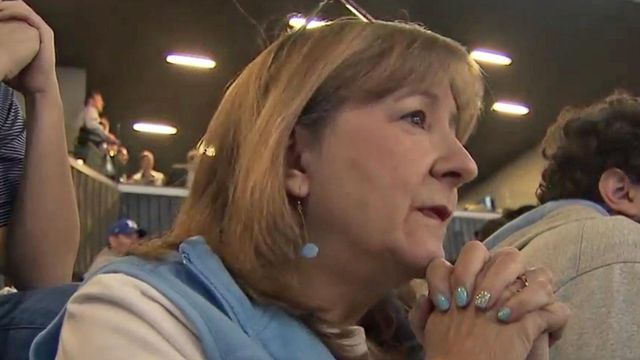Waiting, worry, information overload add to challenges facing cancer patients
Since her October breast cancer diagnosis -- her second -- uncertainty about the future has become the new normal for Pam Kohl. Her wait and worry are common among those facing cancer.
Posted — UpdatedKohl hesitated to spend when son Max found a good deal on plane tickets to the tournament in New York City. Since her October diagnosis, uncertainty about the future has become her new normal.
"There are still these moments that feel very normal, and then there are these moments of, 'Well, wait, I don't know that I can make that commitment,'" Kohl said.
Any battle against breast cancer is a series of waiting – waiting for test results, waiting for a scheduled mastectomy, waiting for a treatment plan, waiting for the doctor to call.
"It's hard," Kohl said, "And sometimes I think the medical community doesn't understand that the waiting is the hardest part."
Dr. Carol Hahn, Kohl's radiation oncologist, said she does understand the stress of not knowing.
"We hate to keep patients waiting for results. I would love to do a test and instantly have a result," Hahn said. "They are hanging on that result. They're hanging on their PET scan, they're hanging on their biopsy."
And when the wait is over, it is up to doctors like Hahn to sometimes deliver difficult news.
"It needs to be delivered in a way that isn't cold and sterile. This isn't about the cancer cell, it's about the patient."
Hahn and other experts suggest that patients bring someone along to office visits as another set of ears to digest the news.
"They hear the word 'cancer,' and then ... I know they're probably not going to hear the rest of the discussion," Hahn said.
Doctors try to treat each diagnosis, each test and each patient as an individual.
"We need to figure out the best care path for each patient which will be different for different patients," Hahn said.
When she and her colleagues at Duke Cancer Institute face a tough case, they convene what's called a tumor conference. That's what they did with Kohl's case. The experts weigh in on the best course of treatment.
They don't always agree, Hahn said, but ultimately, it is providing the most thorough information to a patient to assist them in choosing a treatment path.
"I like to tell patients, 'It's your body, they're you're decisions.'
"I'm going to recommend something, but I try to present therapies as options. I think it's less threatening to the patient," she said. "It is always the option. They can always say no, even if there's only one option."
Hahn cautioned against using the down time of the wait inherent in cancer treatment to let the imagination run wild.
• Credits
Copyright 2024 by Capitol Broadcasting Company. All rights reserved. This material may not be published, broadcast, rewritten or redistributed.






